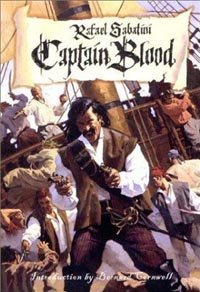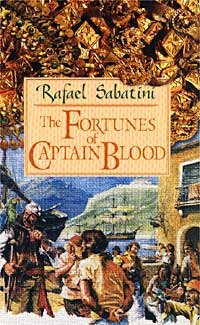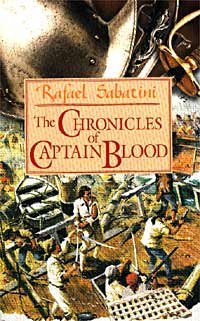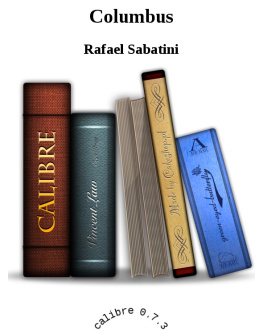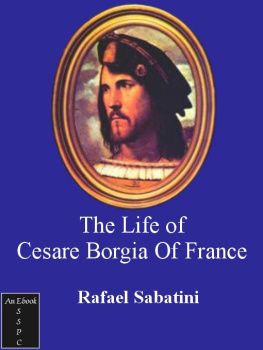Rafael Sabatini - The Historical Nights' Entertainment. First Series
Here you can read online Rafael Sabatini - The Historical Nights' Entertainment. First Series full text of the book (entire story) in english for free. Download pdf and epub, get meaning, cover and reviews about this ebook. genre: Adventure. Description of the work, (preface) as well as reviews are available. Best literature library LitArk.com created for fans of good reading and offers a wide selection of genres:
Romance novel
Science fiction
Adventure
Detective
Science
History
Home and family
Prose
Art
Politics
Computer
Non-fiction
Religion
Business
Children
Humor
Choose a favorite category and find really read worthwhile books. Enjoy immersion in the world of imagination, feel the emotions of the characters or learn something new for yourself, make an fascinating discovery.

- Book:The Historical Nights' Entertainment. First Series
- Author:
- Genre:
- Rating:3 / 5
- Favourites:Add to favourites
- Your mark:
- 60
- 1
- 2
- 3
- 4
- 5
The Historical Nights' Entertainment. First Series: summary, description and annotation
We offer to read an annotation, description, summary or preface (depends on what the author of the book "The Historical Nights' Entertainment. First Series" wrote himself). If you haven't found the necessary information about the book — write in the comments, we will try to find it.
The Historical Nights' Entertainment. First Series — read online for free the complete book (whole text) full work
Below is the text of the book, divided by pages. System saving the place of the last page read, allows you to conveniently read the book "The Historical Nights' Entertainment. First Series" online for free, without having to search again every time where you left off. Put a bookmark, and you can go to the page where you finished reading at any time.
Font size:
Interval:
Bookmark:
THE HISTORICAL NIGHTS' ENTERTAINMENT
First Series
By Rafael Sabatini
PREFACE
In approaching "The Historical Nights' Entertainment" I set myself the task of reconstructing, in the fullest possible detail and with all the colour available from surviving records, a group of more or less famous events. I would select for my purpose those which were in themselves bizarre and resulting from the interplay of human passions, and whilst relating each of these events in the form of a story, I would compel that story scrupulously to follow the actual, recorded facts without owing anything to fiction, and I would draw upon my imagination, if at all, merely as one might employ colour to fill in the outlines which history leaves grey, taking care that my colour should be as true to nature as possible. For dialogue I would depend upon such scraps of actual speech as were chronicled in each case, amplifying it by translating into terms of speech the paraphrases of contemporary chroniclers.
Such was the task I set myself. I am aware that it has been attempted once or twice already, beginning, perhaps, with the "Crimes Celebres" of Alexandre Dumas. I am not aware that the attempt has ever succeeded. This is not to say that I claim success in the essays that follow. How nearly I may have approached successjudged by the standard I had set myselfhow far I may have fallen short, my readers will discern. I am conscious, however, of having in the main dutifully resisted the temptation to take the easier road, to break away from restricting fact for the sake of achieving a more intriguing narrative. In one instance, however, I have quite deliberately failed, and in some others I have permitted myself certain speculations to resolve mysteries of which no explanation has been discovered. Of these it is necessary that I should make a full confession.
My deliberate failure is "The Night of Nuptials." I discovered an allusion to the case of Charles the Bold and Sapphira Danvelt in Macaulay's "History of England"quoted from an old number of the "Spectator"whilst I was working upon the case of Lady Alice Lisle. There a similar episode is mentioned as being related of Colonel Kirke, but discredited because known for a story that has a trick of springing up to attach itself to unscrupulous captains. I set out to track it to its source, and having found its first appearance to be in connection with Charles the Bold's German captain Rhynsault, I attempted to reconstruct the event as it might have happened, setting it at least in surroundings of solid fact.
My most flagrant speculation occurs in "The Night of Hate." But in defence of it I can honestly say that it is at least no more flagrant than the speculations on this subject that have become enshrined in history as facts. In other words, I claim for my reconstruction of the circumstances attending the mysterious death of Giovanni Borgia, Duke of Gandia, that it no more lacks historical authority than do any other of the explanatory narratives adopted by history to assign the guilt to Gandia's brother, Cesare Borgia.
In the "Cambridge Modern History" our most authoritative writers on this epoch have definitely pronounced that there is no evidence acceptable to historians to support the view current for four centuries that Cesare Borgia was the murderer.
Elsewhere I have dealt with this at length. Here let it suffice to say that it was not until nine months after the deed that the name of Cesare Borgia was first associated with it; that public opinion had in the mean time assigned the guilt to a half-dozen others in succession; that no motive for the crime is discoverable in the case of Cesare; that the motives advanced will not bear examination, and that they bear on the face of them the stamp of having been put forward hastily to support an accusation unscrupulously political in purpose; that the first men accused by the popular voice were the Cardinal Vice-Chancellor Ascanio Sforza and his nephew Giovanni Sforza, Tyrant of Pesaro; and, finally, that in Matarazzo's "Chronicles of Perugia" there is a fairly detailed account of how the murder was perpetrated by the latter.
Matarazzo, I confess, is worthy of no more credit than any other of the contemporary reporters of common gossip. But at least he is worthy of no less. And it is undeniable that in Sforza's case a strong motive for the murder was not lacking.
My narrative in "The Night of Hate" is admittedly a purely theoretical account of the crime. But it is closely based upon all the known facts of incidence and of character; and if there is nothing in the surviving records that will absolutely support it, neither is there anything that can absolutely refute it.
In "The Night of Masquerade" I am guilty of quite arbitrarily discovering a reason to explain the mystery of Baron Bjelke's sudden change from the devoted friend and servant of Gustavus III of Sweden into his most bitter enemy. That speculation is quite indefensible, although affording a possible explanation of that mystery. In the case of "The Night of Kirk o' Field," on the other hand, I do not think any apology is necessary for my reconstruction of the precise manner in which Darnley met his death. The event has long been looked upon as one of the mysteries of historythe mystery lying in the fact that whilst the house at Kirk o' Field was destroyed by an explosion, Darnley's body was found at some distance away, together with that of his page, bearing every evidence of death by strangulation. The explanation I adopt seems to me to owe little to speculation.
In the story of Antonio Perez"The Night of Betrayal"I have permitted myself fewer liberties with actual facts than might appear. I have closely followed his own "Relacion," which, whilst admittedly a piece of special pleading, must remain the most authoritative document of the events with which it deals. All that I have done has been to reverse the values as Perez presents them, throwing the personal elements into higher relief than the political ones, and laying particular stress upon the matter of his relations with the Princess of Eboli. "The Night of Betrayal" is presented in the form of a story within a story. Of the containing story let me say that whilst to some extent it is fictitious, it is by no means entirely so. There is enough to justify most of it in the "Relaciori" itself.
The exceptions mentioned being made, I hope it may be found that I have adhered rigorously to my purpose of owing nothing to invention in my attempt to flesh and clothe these few bones of history.
I should add, perhaps, that where authorities differ as to motives, where there is a conflict of evidence as to the facts themselves, or where the facts admit of more than one interpretation, I have permitted myself to be selective, and confined myself to a point of view adopted at the outset.
R. S.
LONDON, August, 1917
I. THE NIGHT OF HOLYROOD
The Murder of David Rizzio
The tragedy of my Lord Darnley's life lay in the fact that he was a man born out of his proper stationa clown destined to kingship by the accident of birth and fortune. By the blood royal flowing in his veins, he could, failing others, have claimed succession to both the English and the Scottish thrones, whilst by his marriage with Mary Stuart he made a definite attempt to possess himself of that of Scotland.
The Queen of Scots, enamoured for a season of the clean-limbed grace and almost feminine beauty ("ladyfaced," Melville had called him once) of this "long lad of nineteen" who came a-wooing her, had soon discovered, in matrimony, his vain, debauched, shiftless, and cowardly nature. She had married him in July of 1565, and by Michaelmas she had come to know him for just a lovely husk of a man, empty of heart or brain; and the knowledge transmuted affection into contempt.
Font size:
Interval:
Bookmark:
Similar books «The Historical Nights' Entertainment. First Series»
Look at similar books to The Historical Nights' Entertainment. First Series. We have selected literature similar in name and meaning in the hope of providing readers with more options to find new, interesting, not yet read works.
Discussion, reviews of the book The Historical Nights' Entertainment. First Series and just readers' own opinions. Leave your comments, write what you think about the work, its meaning or the main characters. Specify what exactly you liked and what you didn't like, and why you think so.

